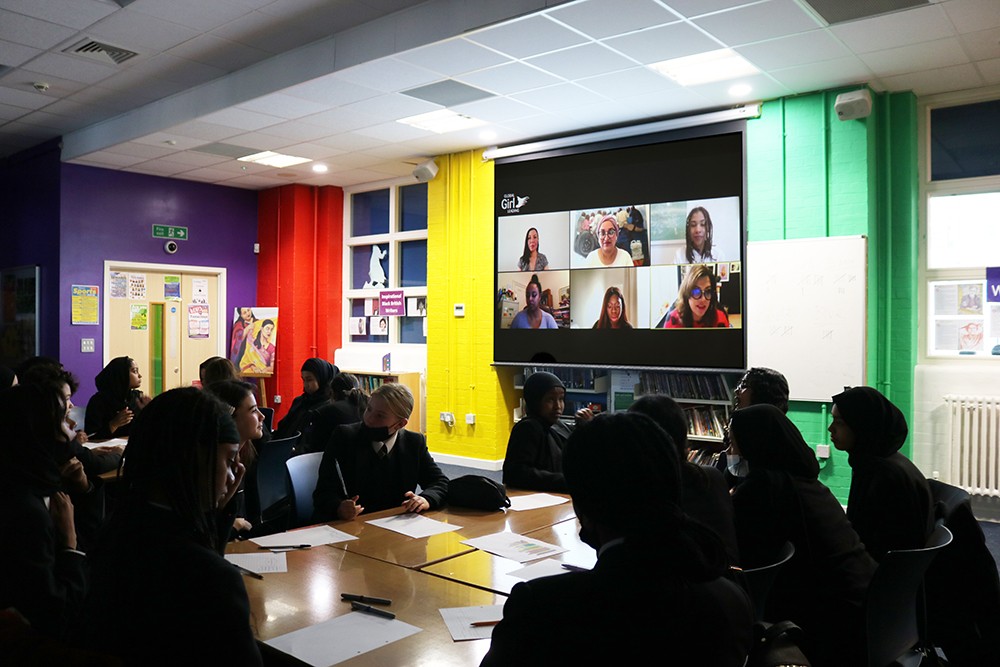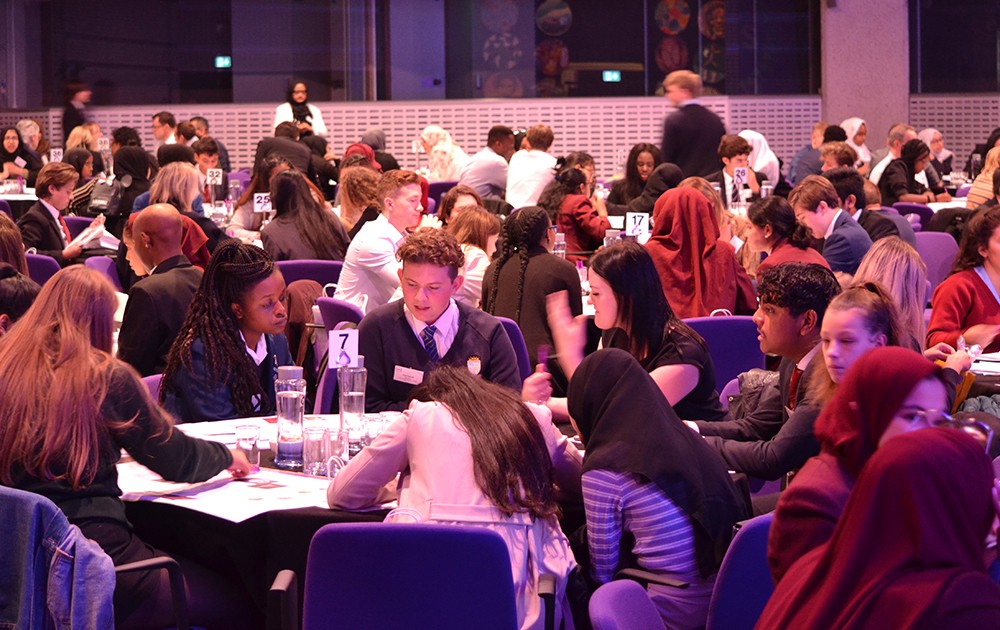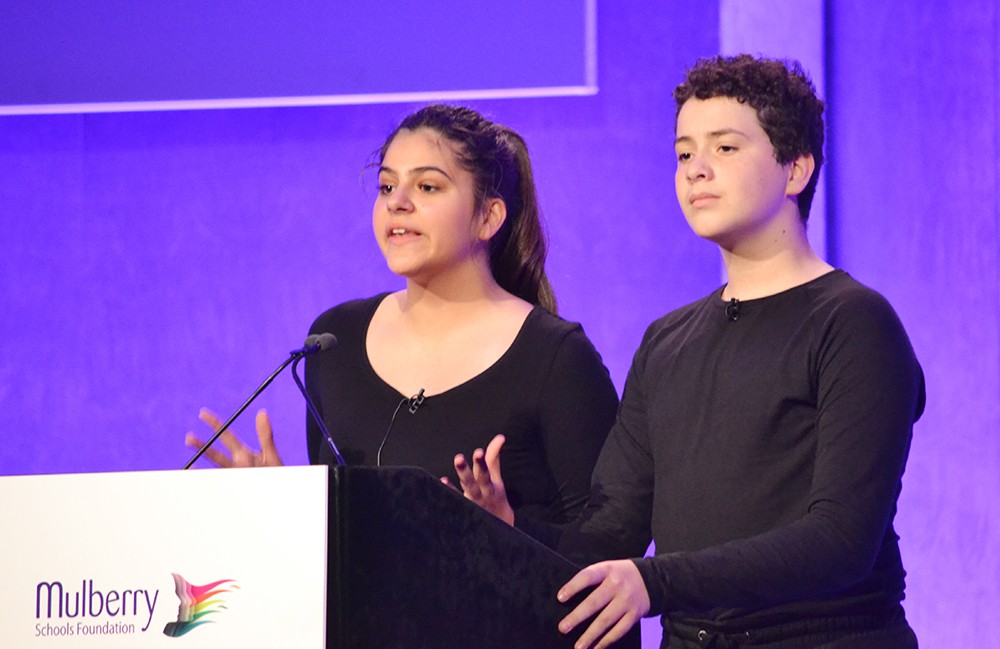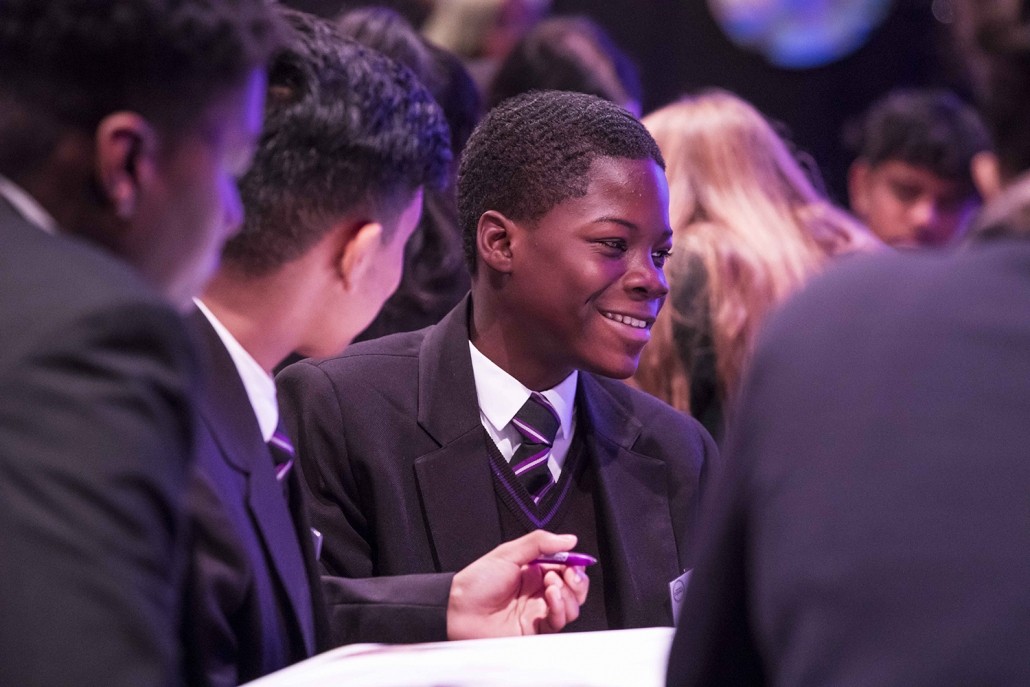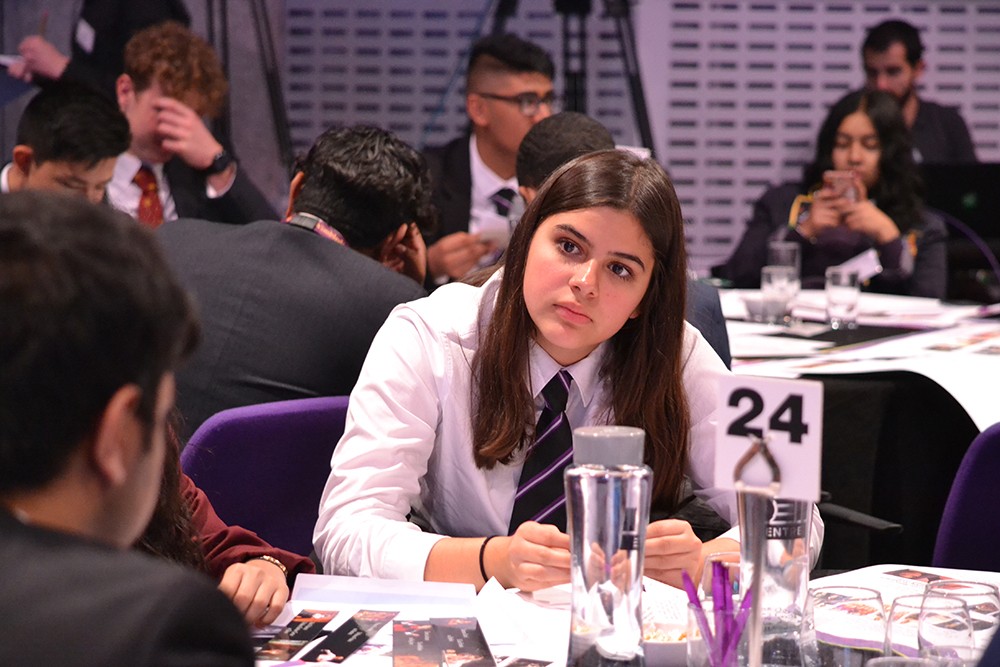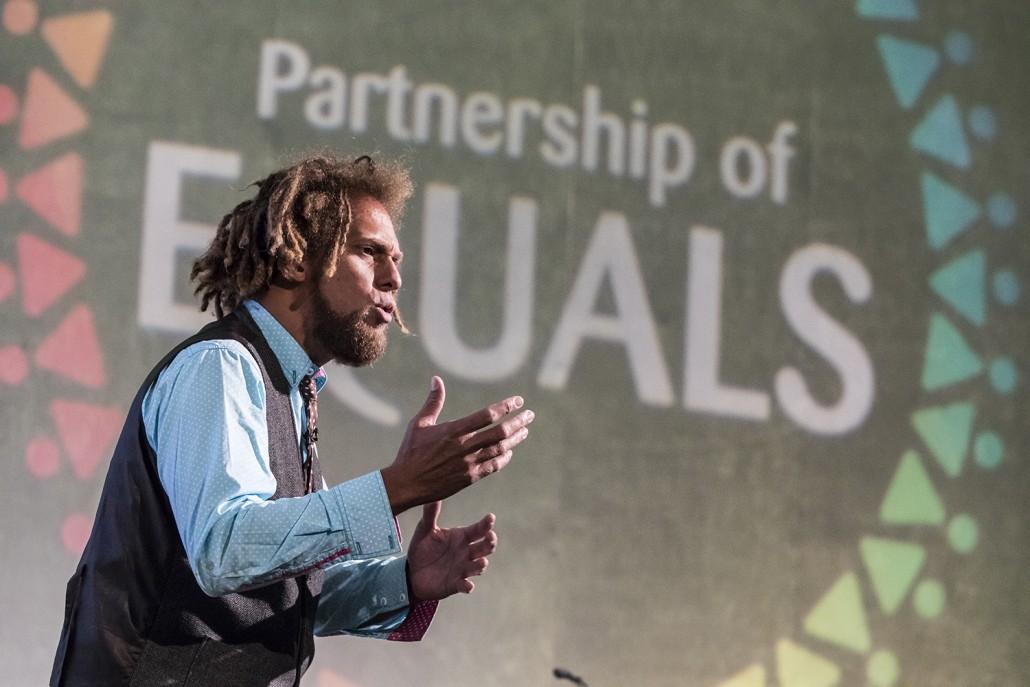Partnership of Equals
Partnership of Equals Conference, October 2021
Mulberry Schools Foundation joined Mulberry School for Girls and Ursuline High School Wimbledon to present the latest Partnership of Equals Conference, reflecting the UNICEF International Day of the Girl theme: “Digital Generation, Our Generation”. The conference was held online with participants from schools across the UK and in Malaysia, Singapore, Israel and Nepal. The programme is available here. The Mexican Ambassador to the UK, Josefa González-Blanco, opened the conference with a challenge to all those who have an education – use it to empower yourself and others. She urged participants to dare to break patterns; to know their voice and to raise it and then to build a community and raise it louder. She noted the empowering potential of digital technology, as well as the dangers, and in particular the opportunities it provides for communication across the globe, pursuing mutual interests and global sisterhood.
A panel of women experts took up this theme with reference to social media, exploring where the power and the risks lie for girls and young women. The positives lie in the ability to connect with others, diversify narratives and to add voices together, amplifying their energy and impact. One panellist noted that her campaign around positive body image for those with birth defects would have been unheard without social media; another that young people are keen to engage politically when they are given easy access to informed debate; and another that the internet had the power to change established media patterns, moving away from the traditional predominance of white males. Overall, the Panel felt that technology makes the world feel smaller and us more visible and it enables every person in a story – a digital platform to stand on to peer over the wall.
The dangers lie in the opportunity for “secret” relationships, the potential for anonymous abuse, the trails that can never be erased and the ease with which meaning can be misconstrued. It is also easy simply to reflect yourself back to yourself and to block out voices dissimilar to your own. Panellists encouraged participants know who they are before entering any online debate so that they can hold their own space. Participants were challenged to “leave digital footprints so powerful that the world is a better place”. All contributors noted that girls and women disproportionately lack internet access, as they lack access to education, and emphasised our responsibility to campaign for that access.
Participants had several sessions to discuss and develop the ideas and issues put forward by the speakers and panellists. They were asked to identify action that they could take, for example “if they were mayor for a day”. They also engaged in structured group discussions about the opportunities and risks of digital platforms and role of technology in activism. The dialogue mat for these discussions is here. Participants also watched compelling videos setting out trailblazers’ advice on how to use the internet constructively – and on what feminism means to activists today.
Mary Ann Sieghart made the second keynote speech, drawing on her recent book “The Authority Gap”. She presented a startling perspective on the unseen bias women experience in their everyday lives, and exemplified the scale of the gap that holds back even the best and most talented. She made practical demands for how we must address and counteract systemic sexism in ways that benefit us all and shared her belief that we could all do so much better. Participants had the opportunity to raise questions following from this presentation and to put them to a second panel of women experts who had been interviewed in Mary Ann’s book.
The conference ended with a film about ‘Little Amal’ who is a 9-year-old refugee girl from Syria, in a form of a puppet, who has travelled from Turkey to London through Europe. She signifies the plight of displaced refugees around the world. Participants were called to action as they reflected on how they can make the world a better place for girls.
Partnership of Equals conference, October 2018
Mulberry Schools Foundation held its first Partnership of Equals conference at the QEII Conference Centre in October 2018. The Foundation built on Mulberry School for Girls’ track record of Women’s Conferences that celebrate the power of student voice and promote positive action for social change.
The conference was in large part designed, organised and hosted by students and the 400 delegates were school students from London, Manchester and Somerset. The conference provided a space for student voice and visibility and brought young people together with diverse role models to consider important issues of gender equality, through the lens of the expressive arts. Stories of success and struggle were exchanged with youthful passion and innovation, empowering those who have yet to make their way in the world.
The day began with a conversation between artist Grayson Perry and Jude Kelly. Grayson Perry shared his experience as a transvestite and the gender stereotypes that affect his life. Delegates discussed challenges they face in relation to gender identity and sexuality.
A panel that included choreographer and director Matthew Bourne, Artistic Director Shobana Jeyasingh, Choreographer Julie Cunningham and Programmes Director Delia Barker explored gender in dance. Delegates discussed issues relating to gender inclusion and cultural diversity in the performing arts. Delegates watched a dance performance by students from Mulberry School for Girls and Heston Community School which aimed to challenge some of these stereotypes.
Lunch was followed by an exploration of gender in Shakespeare’s plays. Delegates watched an open rehearsal directed by Carrie Cracknell, with professional actors, and heard from a panel of actors and directors, including theatre director David Lan, actor Jade Anouka and artistic director Justin Audibert, about gender in theatre and the importance of character interpretation that bypasses stereotypes. Delegates put their questions to the panel. Students from Mulberry Academy Shoreditch performed an innovative interpretation of some of Shakespeare’s sonnets.
Edwina Dunn, Founder of the Female Lead, then explained her work as an advocate for female role models and shared the stories of many inspirational women. The final speaker, Lady Shami Chakrabarti, shadow Attorney General, drew from her 2018 book “Of Women” to set out her view that gender injustice is the greatest human rights abuse on the planet. She touched on some radical solutions and potential rewards including peace, prosperity, sustainability and human happiness.
Participants had worked together for a year before the conference to consider the impact of gender inequality on both women and men. They raised issues that were explored further in the conference. Participants were also invited to write poems to be judged by a specialist panel, chaired by theatre producer Kate Pakenham. All poems were published in an anthology, ‘Letters to our Daughters’, and the winning students performed their poems at the conference, inspired first by a performance from poet Dave Neita.
Before they left the conference, delegates committed to specific action on gender equality in their home schools.
This was the first in a series of Mulberry Schools Foundation Partnership of Equals conferences. We hope they will contribute to a future in which we can enjoy a true ‘Partnership of Equals’ between all genders.
See the conference programme here and find the conference resources available for use by others.

